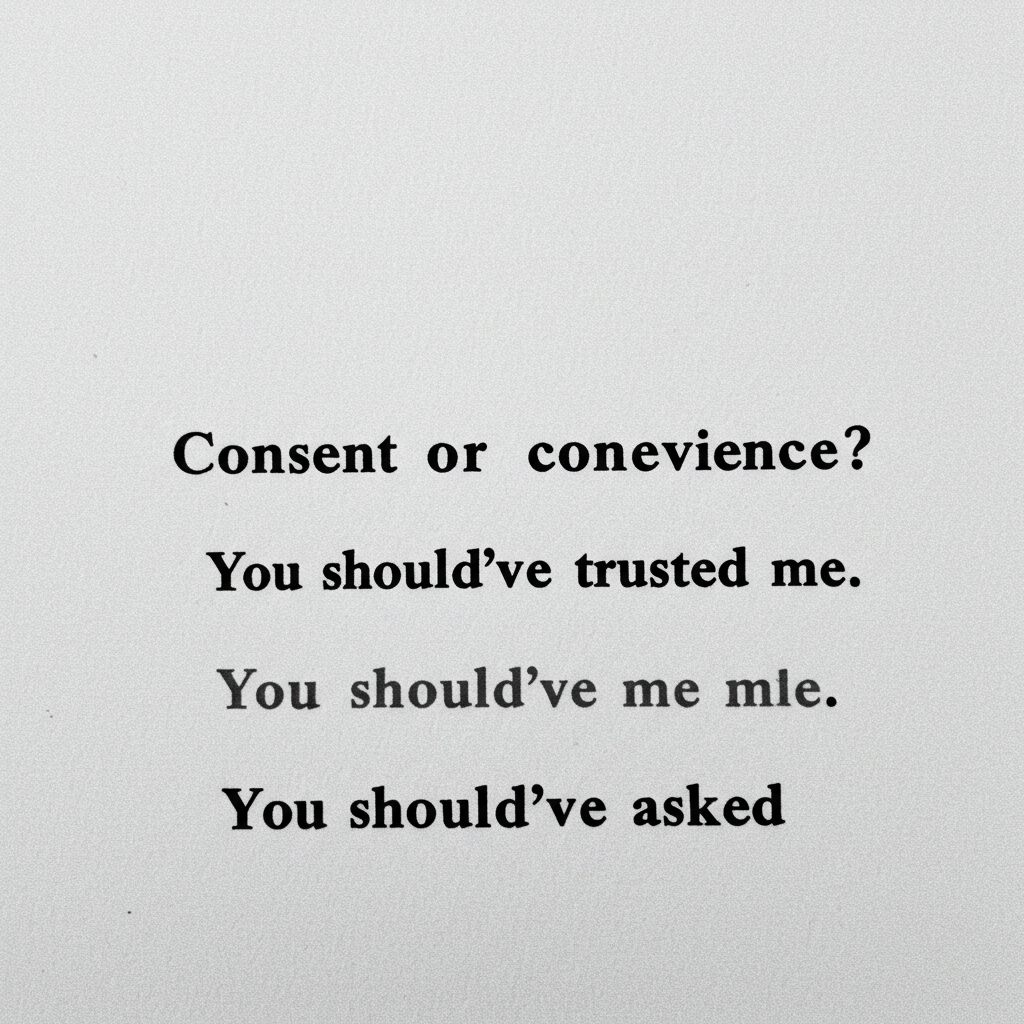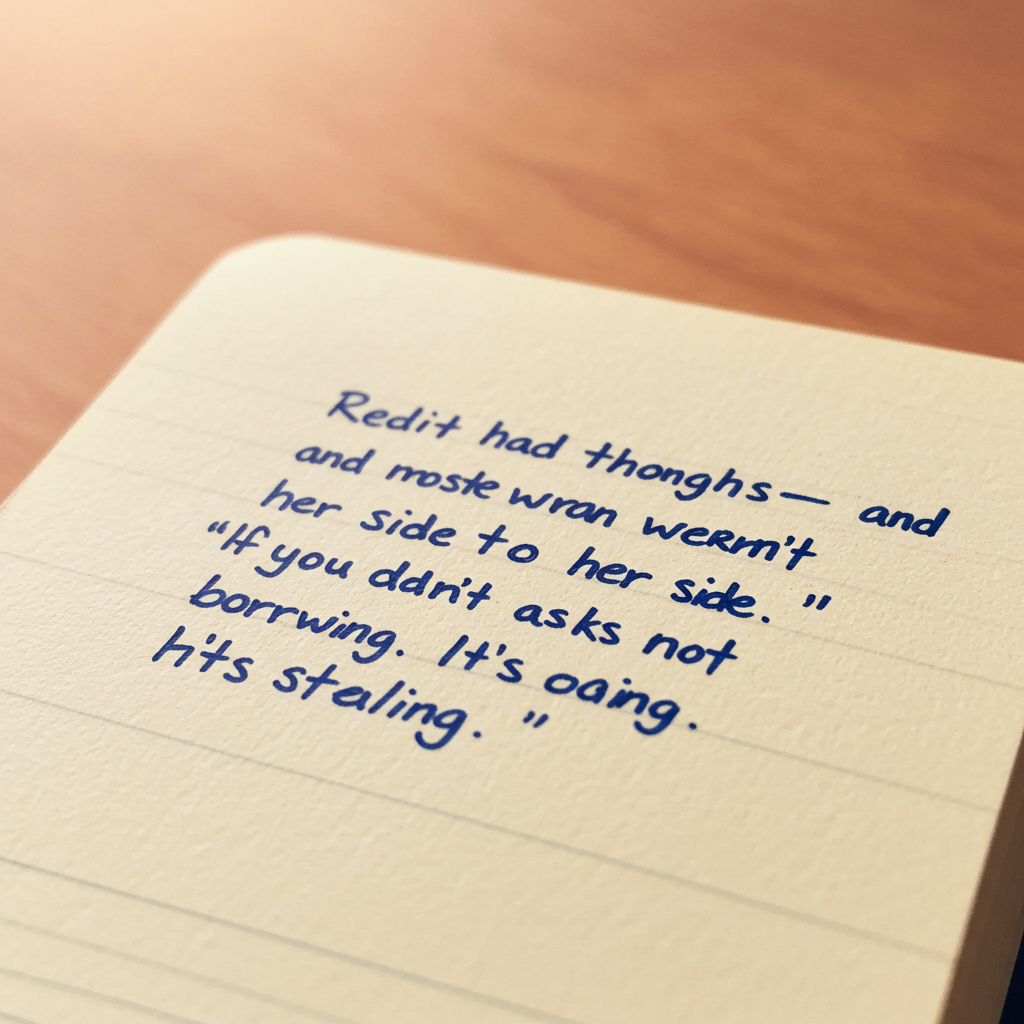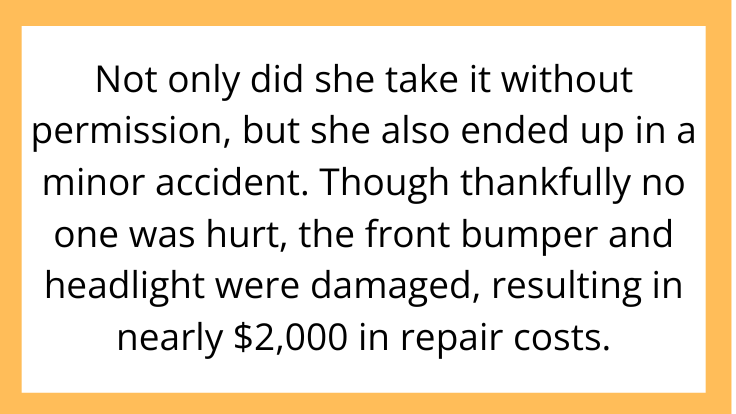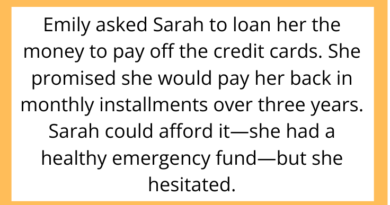AITAH for Not Paying for My Girlfriend’s Car Repairs After She Used It Without Asking and Crashed It?
Some stories shared on r/AITAH tap into deeper issues about trust, responsibility, and boundaries—and this one is no exception. Today’s post revolves around a relationship tested by a bad decision, unexpected consequences, and an even bigger question: Who should pay the price when someone crosses a line?
Let’s unpack what happened and explore whether the original poster was truly the villain—or just someone standing their ground.
The Situation: A Car, a Crash, and No Permission

The original post comes from a 28-year-old man—let’s call him Rohan—who explained that he owns a car he’s very protective of. It’s fully paid off, well-maintained, and primarily used for commuting to work. While his girlfriend, Sara, has her own vehicle, she was having engine issues and had been using public transportation temporarily.
One weekend, while Rohan was out of town visiting family, Sara decided to borrow his car. The problem? She didn’t ask.
Not only did she take it without permission, but she also ended up in a minor accident. Though thankfully no one was hurt, the front bumper and headlight were damaged, resulting in nearly $2,000 in repair costs.
When Rohan got back, he was furious—not just about the crash, but about the lack of communication. Sara assumed he’d be “fine with it,” since they’d been dating for two years. She also expected him to pay for the repairs, since it was his car.
He refused. And now, the relationship is hanging by a thread.
The Argument: Who Bears the Responsibility?

Rohan’s Side: It’s About Consent and Consequences
Rohan’s main point was simple: she didn’t ask, and she didn’t have permission. He felt betrayed that Sara assumed it was okay to take something so valuable without talking to him first. He likened it to borrowing someone’s credit card without asking—and then expecting them to pay for what you charged.
To him, the accident was a result of her decision. He argued that if she had asked, he would have likely said no, which means the whole situation could’ve been avoided.
He also pointed out that he’s not being cruel—he’s just asking her to take responsibility for the mistake she made.
Sara’s Side: Relationships Are About Sharing
Sara, on the other hand, argued that after two years of dating, she should be trusted to use the car, especially in an emergency. Her car had broken down, and she needed to get to work. She claimed that Rohan was overreacting and treating the relationship like a business transaction instead of a partnership.
She also noted that since it was his car and he had insurance, it was “technically” his responsibility.
But Reddit wasn’t buying that argument.
Reddit Responds: Boundaries Matter

The AITAH community had a strong reaction—mostly in favor of Rohan.
Top comments emphasized that borrowing something expensive without permission is a clear violation of trust.
“If someone takes your property without asking, that’s not borrowing—that’s stealing,” one user wrote. “You’re absolutely not the villain for expecting her to pay.”
Others pointed out that being in a relationship doesn’t mean you lose your autonomy.
“If she thought it was okay to take the car, why didn’t she call first? That says a lot,” said another commenter.
Still, a few voices came to Sara’s defense, suggesting that Rohan might be overly rigid and that perhaps their communication had been strained even before the car issue.
Trust vs. Entitlement: A Deeper Conversation

This scenario reveals more than just a car crash—it exposes a rift in the way two people view boundaries and partnership.
Sara seemed to view their relationship as one where resources are shared freely. But Rohan believed respect for personal property and clear communication should come first.
Both perspectives can coexist in healthy relationships—but only when expectations are clearly defined and respected.
When one partner acts on assumptions, it often leads to conflict, especially when high-value items like vehicles, finances, or homes are involved.
Could This Have Been Avoided?

Yes—and here’s how:
For Rohan:
-
Be proactive about discussing boundaries around possessions in a serious relationship.
-
If certain things are off-limits, clarify them to avoid misunderstandings.
For Sara:
-
Ask. Always.
-
If you break something—whether it’s trust or a car—it’s fair to take responsibility, not shift the blame.
Ultimately, even in long-term relationships, consent and communication are key.
The Verdict: Not the Villain

Rohan is not the villain for refusing to pay. In fact, most would argue he was remarkably patient considering the circumstances.
Taking something without asking, damaging it, and then expecting the owner to pay is a textbook example of entitlement—no matter how close the relationship is.
Relationships thrive on mutual respect. And in this case, that respect was broken.



